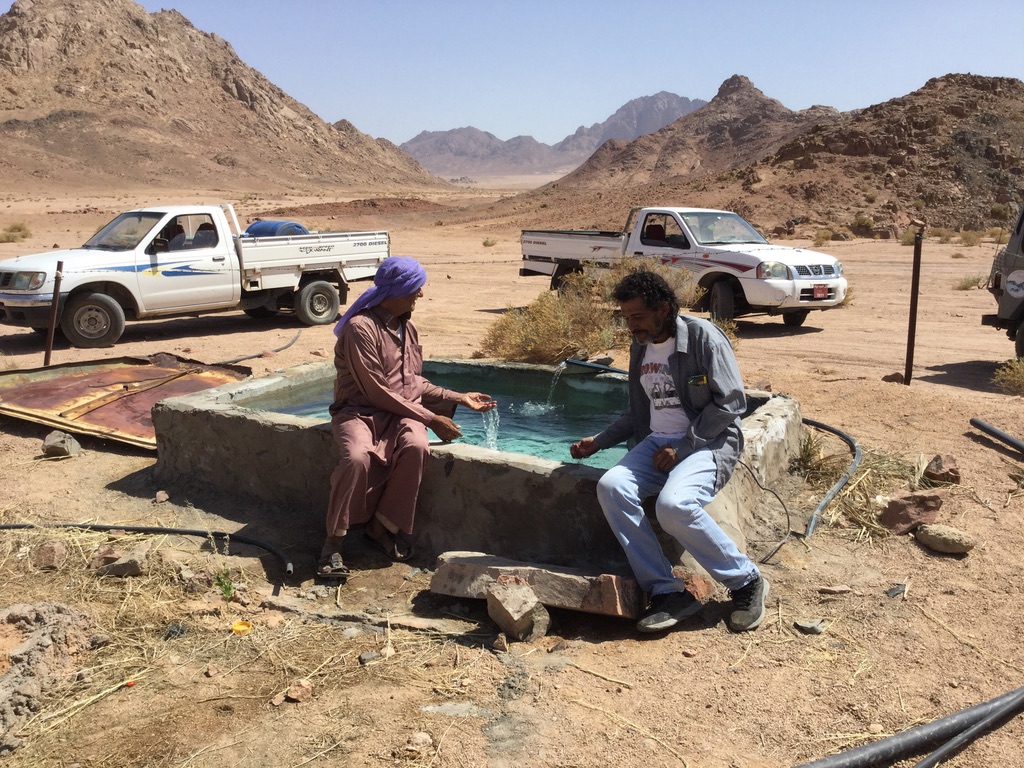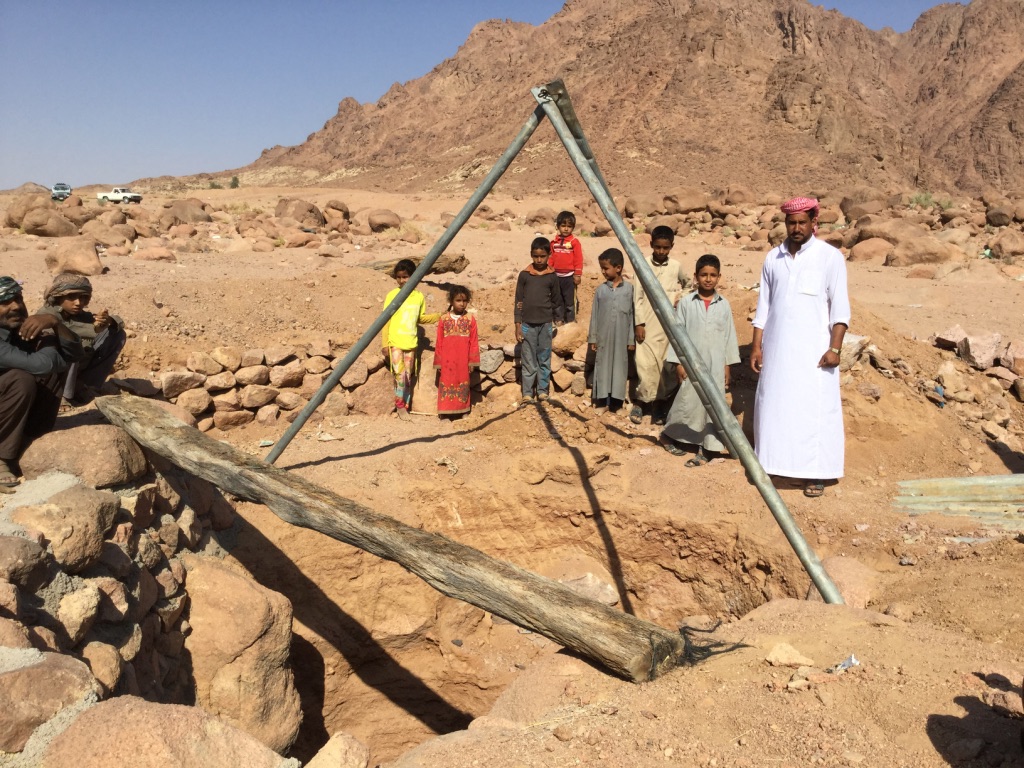In Egypt water is scarce. It is a desert landscape with little rain so access to water is by wells dug into the aquifer below to access water stored centuries before by the rock formations. The Bedouin people have relied on wells for water for thousands of years.
The Egyptian authorities only provide water suitable for washing, as it is contaminated by sewage and this is distributed by truck for payment. Consequently people rely on old community wells for drinking water for them and their animals. Each well supplies 15-30 families and their goats and camels – but many are going dry due to the drop in the water table.
Well water is shared around communities and there is often not enough . Bedouin traditions ensure that no-one will ever refuse their water to others but it results in too many families drawing water from one well. Women usually collect the water and often have far to walk to the nearest well where collecting with buckets can be unsafe. When there are no useable wells in an area people are forced to go many miles to find it and then only a little can be carried.
We started facilitating the restoration of community wells in 2008 after requests by Bedouin communities for help.
Wells are restored by digging out flooded wells, digging wells deeper to reach the lower water table, and by lining the wells to prevent them caving in. Flood protection walls or a lid are usually added to safeguard the water supply. Often water is pumped or gravity fed to a water tank or Birka beside houses in a community. Funds pay for experienced well diggers and builders, for cement, hoses, pumps, steel reinforcing bars, strong metal lids, transport of materials including cement and stones, and tools. It is also traditional in Egypt for workers to be fed while working on the project.
We have facilitated the restorations of 275 wells in the towns, mountains and deserts around St Katherines, but we still have another 200 wells on our waiting list, so the project continues.





